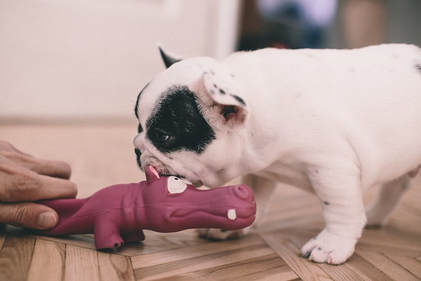Did you get a pet for christmas? tips to help you enjoy your new friend!
 There’s a funny song “I Want a Hippopotamus for Christmas” – did you get one of those? Sometimes families or individuals bring home a new pet as a Christmas gift, maybe not a hippo but a dog, cat, or guinea pig. Is that you this year? No matter what time of year you bring a new pet into your household, your life is going to be different – just as it is when a new human baby arrives. Here are a few tips to help you, your family, and your new pet friend adjust to the “new normal:”
There’s a funny song “I Want a Hippopotamus for Christmas” – did you get one of those? Sometimes families or individuals bring home a new pet as a Christmas gift, maybe not a hippo but a dog, cat, or guinea pig. Is that you this year? No matter what time of year you bring a new pet into your household, your life is going to be different – just as it is when a new human baby arrives. Here are a few tips to help you, your family, and your new pet friend adjust to the “new normal:”Be responsible – the furry, scaly, or feathered friend now living in your house is now a responsibility that cannot be taken lightly. This animal depends on you for its care: food, water, shelter, attention. And though you may have more time during the holiday season, being off work and out of school for several days, what happens when school starts, and/or you must return to work? The care and attention can’t take a back seat. Don’t neglect your animal; adjust your schedule to include the feeding and playtime your pet needs.Make a commitment – your new relies upon you and this dependence doesn’t cease when the puppy grows into a young adult or the adult becomes a senior. Be committed to caring for this animal for the rest of its life – newness will wear off, puppy behavior will no longer be cute, and the fish won’t feed itself. Compassion, care, and commitment are necessary for the animal’s entire life – please be that type of owner. Too many animals wind up in shelters after the first few months or years after people bring them home because the commitment and responsibility wanes – don’t be one of those! Animals become attached and their hearts and spirits can be broken by abandonment.Make training a priority – Training your dog basic obedience is necessary for its well-being and your sanity. It will be better behaved in social settings and in your home if you teach it seven basic commands: sit, stay, down, come, heel, no, and off. Although tricks can be fun, the basic commands help keep your dog under control and safe. Cats can also be taught things, including walking on a leash and staying off the table and kitchen counter. Some birds can be taught to speak, and fish – well, they are lovely to look at.Provide a “safe space” – this can be a kennel or a room. Dogs and cats especially need quiet places from which to escape noise, company, and door openings and closings (through which they can run outside and end up hurt). These “retreat” areas should have toys, blankets, and other “comfortable” things not only to keep them occupied, but also relaxed.Exercise your pet – Whether your new animal is a hamster, a rabbit, a bird, a ferret, or cat or dog, each needs exercise and playtime. Such activity could include toys by which the animal plays by itself while you’re away or going to a park or for a walk, exercise is very important for an animal’s wellness. Pet obesity is a rising health concern which can lead to many other medical issues, such as diabetes. Just as humans need exercise, so do our pets. There are many types of toys for the different types of animals; invest in their health just as you invest in yours.
These are just five tips to consider before and after you bring home a new pet. There are many other ideas offered by the ASPCA (American Society for the Prevention of Cruelty to Animals) and Petfinder, two sites which provide pet adoption opportunities and pet care tips:
https://www.petfinder.com/pet-adoption/dog-adoption/pet-adoption-checklist/
https://www.aspca.org/pet-care
Pets bring people deep joy through their antics and their devotion. Studies show pets benefit people emotionally and physically, helping with depression, cholesterol, and blood pressure, among other things. A pet is a special gift, and it’s a gift for life. Take care of your new pet and it will take care of you!

Published on December 27, 2018 10:33
No comments have been added yet.



